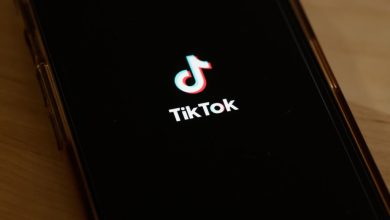AI Is Fueling Tech Layoffs — But It’s Boosting Salaries By $18K A Year In Other Industries, Report Finds


AI is rapidly transforming the job market. In tech, companies are cutting jobs. In other industries, however, professionals with AI skills are finding higher pay and new opportunities.
A report by labor market analytics firm Lightcast, cited by Fortune, shows the shift is already in progress. The report, “Beyond the Buzz,” analyzed over 1.3 billion job postings. It found that while some tech roles are declining, demand for AI skills is rising in marketing, education, finance, and human resources.
Tech Jobs Are On The Chopping Block
Over the past year, tech companies have cut jobs while expanding their AI investments, Crunchbase reports.
Automation is taking over roles in software development, IT support, and administration. Fortune reports that up to 80,000 workers have been affected. Microsoft alone has cut 15,000 jobs while investing $80 billion in AI, the outlet states.
Lightcast data confirms the trend. AI-skilled jobs in IT and computer science dropped from 61% in 2019 to 49% in 2024, per the report. While total AI job postings are increasing, fewer are based in traditional tech departments.
AI Skills Are Paying Off In Other Industries
In 2024, over half of AI-related job postings appeared in non-tech sectors, according to Lightcast. On average, these offer a salary increase of $18,000 per year — a 28% boost compared to similar jobs without AI requirements.
Fortune notes that listings requiring two or more AI skills can offer up to 43% higher salaries. Demand is growing fastest in marketing, sales, customer support, and manufacturing.
The use of tools like ChatGPT, Microsoft Copilot, and DALL-E has exploded — especially in creative and customer-facing roles where AI can support everything from writing ad copy to streamlining customer service requests, the outlet reports.
Additional Lightcast findings, per Fortune, report that generative AI was cited in more than 66,000 job postings in 2024, marking an increase of nearly four times that of the previous year.
Human Skills Still Carry Weight
Despite automation, employers still value human skills. According to Fortune, the top non-technical traits mentioned in AI-related job listings include communication, leadership, problem-solving, and research.
“While generative AI excels at tasks like writing and coding, uniquely human abilities—such as communication, management, innovation, and complex problem-solving—are becoming even more valuable in the AI era,” the report says.
According to Fortune, experts agree that AI fluency is becoming essential in the workplace. Christina Inge, founder of Thoughtlight, says workers who can prompt tools, fix errors, and interpret AI outputs bring added value to employers.
In fields such as customer service and sales, AI tools are being used to support interactions with clients and improve workflow efficiency. “That combination of human judgment and AI fluency is hard to find and well worth the extra pay,” Inge told Fortune.
The financial effects of AI skills differ by industry. In an interview with Fortune, Cole Napper, vice president of research, innovation, and talent insights at Lightcast, said the data showed no clear pattern across sectors. He did note that roles in the arts appeared frequently among positions listing AI skills.
Napper also told Fortune that ignoring AI trends may reduce earning potential. Lightcast plans to release a more detailed income breakdown in future research.



